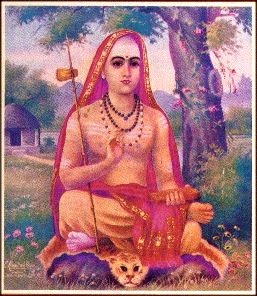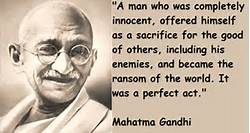SAYINGS ON THE BHAGAVAD GEETA :
.jpg)
Saturday, Sep 28, 2013. SAYINGS ON THE BHAGAVAD GEETA : Aurobindo Ghose What is the message of the Geeta and what is its working value, its spiritual utility to the human mind of the present day, after the long ages of transformations of thought and experience? The human mind always moves forward, alters its view-point and enlarges its thought-substance, and the effect of these changes is to render past systems of thinking obsolete, or, when they are preserved, to extend, to modify and, subtly or visibly, to alter their value. The vitality of an/any ancient doctrine consists in the extent to which it naturally lends itself to such a treatment; for that means that whatever may have been the limitations or the obsolescences of the form of its thought, the truth of substance, the truth of living vision and experience on which its system was built, is still sound and retains a permanent valid significance. The Geeta is a book that has worn extraordinarily well, and it is
.jpg)
.jpg)



